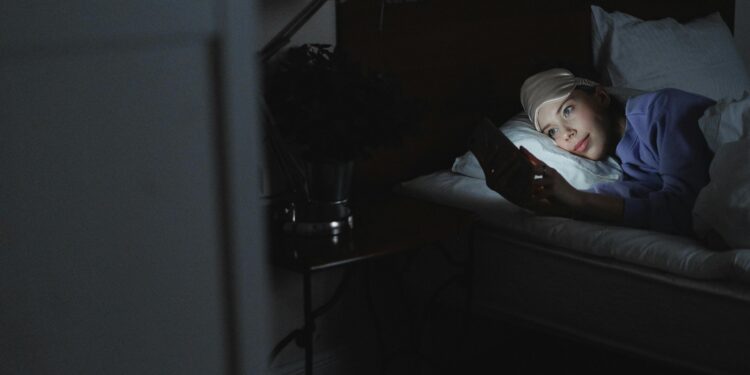Credit: SHVETS production from Pexels
Posting on Twitter (also known as X) at night is associated with worse mental well-being, according to a new study from the University of Bristol published in Scientific reports.
Tweeting throughout the night explained almost 2% of the variation in participants’ mental well-being, which is comparable to activities such as binge drinking and marijuana use (as measured in previous studies).
Researchers suggested that active Twitter use during the night could both disrupt and delay sleep, which could reduce the quality and quantity of sleep, thereby harming mental well-being. Nighttime tweets showed a weaker relationship with depressive and anxiety symptoms (compared to mental well-being), although this relationship became stronger after the results were broken down by age and gender.
According to a 2022 YouGov survey, 74% of UK adults keep their phone in their bedroom at night, while 26% say they would check their phone if they woke up in the night.
Regulations and advice for nighttime use of social media
The study findings support calls for more regulation and guidance for nighttime social media use. For example, TikTok, the online video sharing app, introduced the “Wind Down” tool in March this year, which streams meditation videos at night to encourage young users to stop scrolling.
Researchers say top-down approaches to changing the user architecture of apps, such as TikTok’s phase-out mode, as well as education campaigns aimed at raising awareness among vulnerable groups, could help improve the safety of social media use.
Daniel Joinson, doctoral researcher and lead author of the paper, said: “Although social media is often treated as a monolith, its impact on mental health will depend on the exact behaviors the user adopts and the experiences they have on these platforms. Our article highlights the potential harm of a very specific behavior: posting content at night.
“Research like ours could help inform interventions or legislation aimed at deterring harmful social media use, while still enabling beneficial behaviors or experiences. This is made possible by access to real social media data, which is essential if we are to better understand the relationship between social media and mental health.”
New approaches to data collection
The research used longitudinal data from 310 adults (aged 18-60+) from the Children of the 90s study who consented and were eligible to share their Twitter data, with 18,288 tweets included in the data. Participants’ mental health was measured at several time points using standard questionnaires, including the Short Mood and Feelings Questionnaire (SMFQ). It’s important to note that instead of categorizing people as simply depressed or not, mental health was measured on a scale giving a more detailed picture. Participants’ tweets within two weeks of these questionnaires were included in the analysis, but all others were not.
Uniquely, the study used data directly from Twitter (with the participant’s consent). This allowed researchers to collect precise measurements of the time of day participants posted on Twitter.
However, the authors noted that the study participants were all adults, almost entirely white, and more of them were women. This data was collected during the COVID-19 pandemic, a unique time for social media use and mental health patterns.
The research team is now seeking to better understand how patterns of emotion expression and social interactions are linked to mental health and well-being.
More information:
Daniel Joinson et al, Active nighttime tweeting is associated with significantly lower mental wellbeing in a UK birth cohort study, Scientific reports (2025). DOI: 10.1038/s41598-025-14745-y
Provided by University of Bristol
Quote: Tweeting at night linked to worse mental well-being (October 12, 2025) retrieved October 12, 2025 from
This document is subject to copyright. Except for fair use for private study or research purposes, no part may be reproduced without written permission. The content is provided for informational purposes only.



